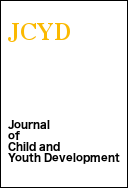Main Article Content

Abstract
This article argues that self-regulated learning (SRL) in the classroom is an inherently social, dynamic, and complex process and that it is crucial to discuss SRL with regard to concrete practices and with a focus on what children actually do and say in classrooms. Current theoretical views on SRL are presented and consensual as well as conflicting aspects are identified. It presents a qualitative study of SRL in first and second grade children using qualitative triangulation of observation and interview. An example from a video observation in this study shows a fine-grained view of a process of SRL. The example which is analysed in detail shows a six-year old first grade student sitting at a table with other children and working on a mathematics task over a period of 30 minutes. In the analysis it becomes evident that this boy is self-regulating continuously and that several processes of complex self-regulation go hand in hand and are interwoven in this day-to-day learning episode. Multiple goals, social goals as well as learning goals are handled and balanced. With reference to the example presented, it is argued that SRL is always social, ubiquitous, not necessarily academically effective, and at times implicit.
